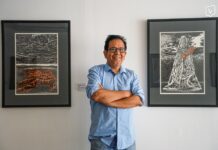THE YEARLY Tribute to the Thomasians concert by the UST Symphony Orchestra at the Cultural Center of the Philippines was renamed SYmphoNERGY this year.
Mounted last last Sept. 1, the concert again featured the orchestra composed of students and faculty members of the UST Conservatory of Music, under the baton of Professor Herminigildo Ranera.
Under the baton of Ranera, they began with an overture from “Orpheus in the Underworld” by German-born French composer, Jacques Offenbach. The second half of the overture was familiar to the audience, with its fast, rhapsodic beat and rhythm often played in programs and shows.
Tchaikovsky’s “Symphony No. 4 in F Minor, Opus 36” was the focal point of the concert. This symphony has four alternating movements, with the first two movements, “Andante sostenuto-Moderato con anima” and “Andantino in modo di canzona,” featuring the musical equivalent of lightning bolts followed by bursts of drawn silence as a dark and melancholic mood was felt through a moderate then calm tempo.
The third movement, “Scherzo: Allegro” highlighted strings and woodwinds followed by brass instruments played with a childlike melody.
Meanwhile, a festive feel with loud and thunderous beat was exuded in “Allegro con fuoco,” the fourth movement.
“It is a very challenging piece, but they (the orchestra members) were able to play it well despite the level of difficulty,” Ranera said.
The second half of the concert featured the Philippine premiere of bassoon instrumentalist, Adolfo Mendoza, in Hummel’s “Grand Concert in F.” With an ensemble of strings and winds, Mendoza played the double-reed woodwind instrument and tried to bring justice to the intricate piece.
The concert concluded with “Polovetsian Dances” from Borodin’s Prince Igor, with the vocal accompaniment of Coro Tomasino, Liturgikon Vocal Ensemble and Conservatory Chorus Classes, totaling to some 100 singers. The volume of the voices in unison was profound and whole even as the rendition shifted from a vocal passage of sustained lyricism to a few recited lines. Aliliana Margarette T. Uyao













